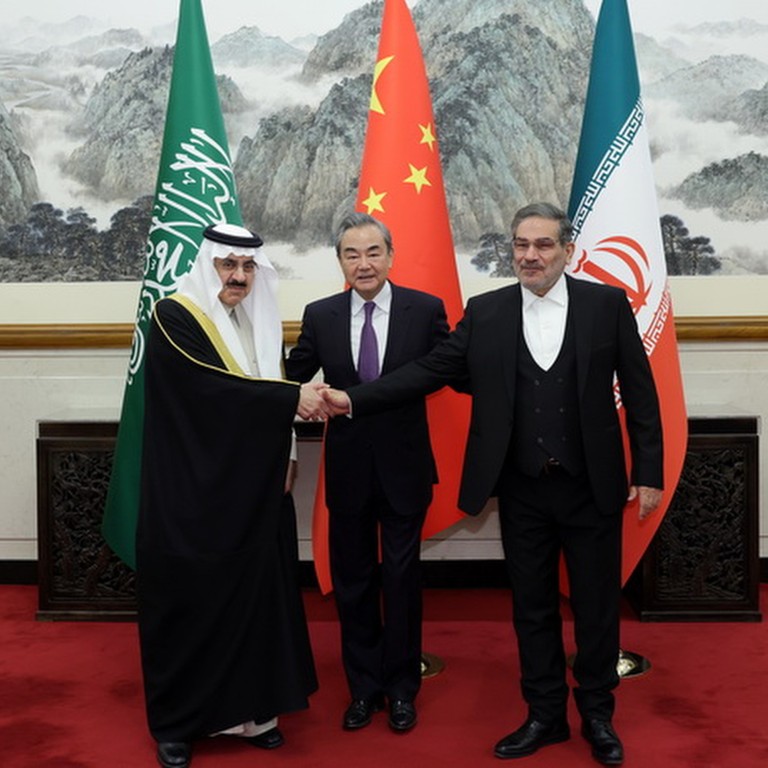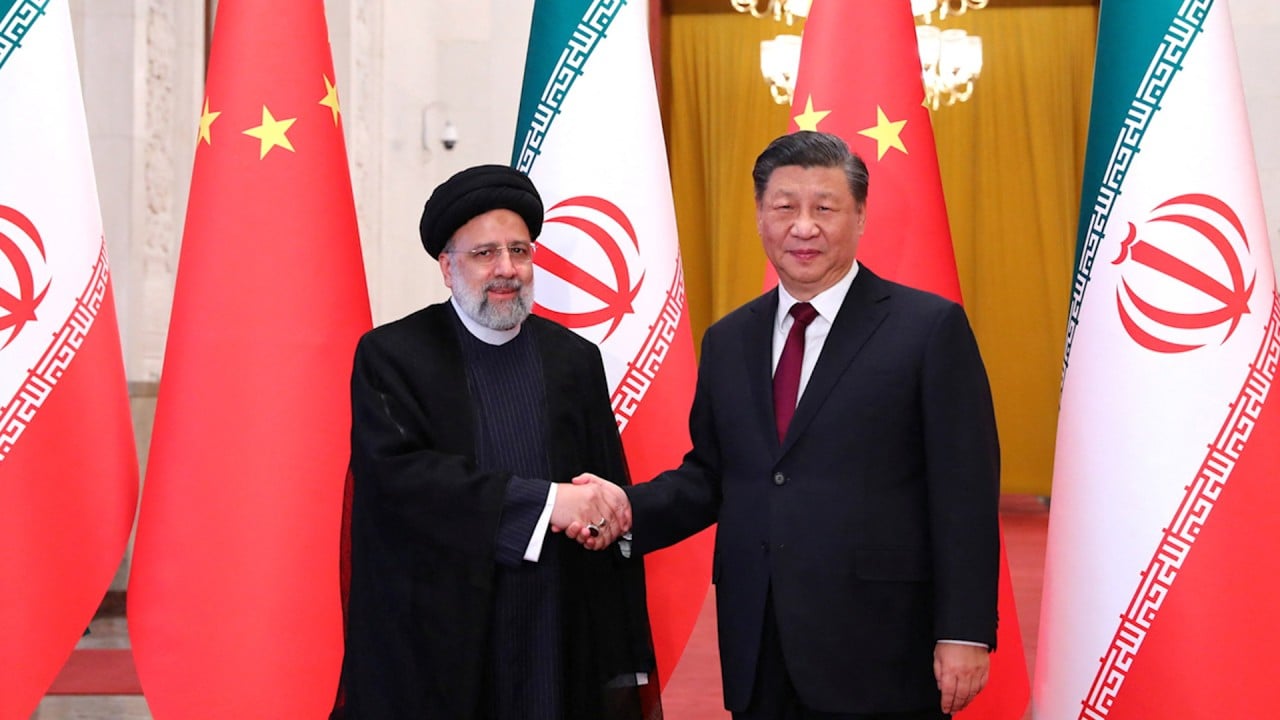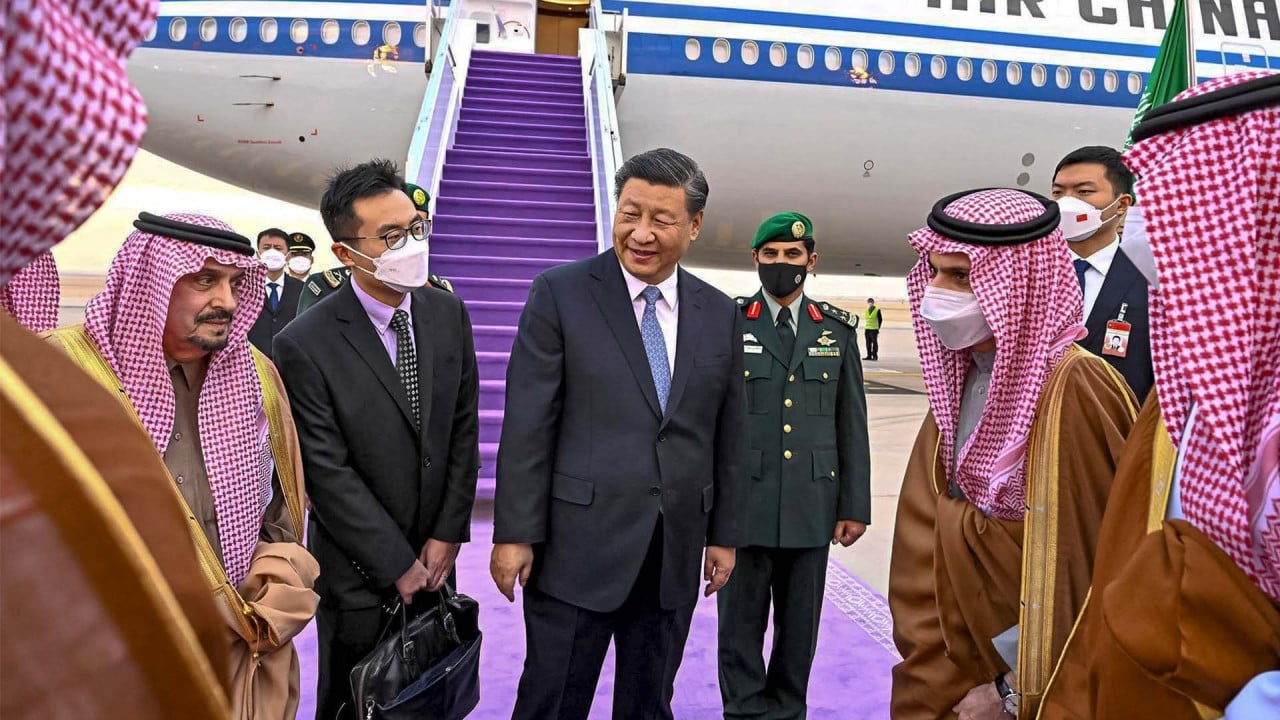
China helps broker Iran-Saudi diplomatic agreement, calling deal ‘a victory for peace’
- Officials from Tehran and Riyadh sign deal in Beijing to resume ties between the two Mideast countries
- China’s top envoy says Xi Jinping ‘guided the talks from the beginning’ while the US questions the ‘durability’ of the deal
Top security officials from Tehran and Riyadh held four days of talks from Monday in Beijing, with Iran, Saudi Arabia and China signing a joint statement in a ceremony on Friday.
“As a result of the talks, Iran and Saudi Arabia agreed to resume diplomatic relations and reopen embassies … within two months,” Iranian news agency IRNA reported.
In a statement on its website, the Chinese foreign ministry quoted top diplomat Wang Yi as saying the agreement represented “a victory of dialogue and peace”.
“This shows that the Ukraine issue is not the only problem the world faces today,” Wang said.
“[We face] many problems related to peace and people’s livelihood that deserve international attention, and timely handling by the relevant stakeholders.
“But regardless of their complexity and difficulties, they can be resolved through dialogue on equal footing and with mutual respect.”
The Beijing-hosted talks followed Xi’s trip to Saudi Arabia in December and Iranian President Ebrahim Raisi’s visit to China last month.
Saudi Arabia severed ties with Iran in 2016 after the storming of its embassy in Tehran in an escalating dispute between the two countries over Riyadh’s execution of a Shiite Muslim cleric.
Saudi Arabia’s state news agency said the two states agreed that their foreign ministers would meet to implement the agreement, arrange for their ambassadors to take up posts in the respective capitals, and discuss ways to improve relations.
In addition, the statement said the agreement included “their affirmation of the respect for the sovereignty of states and the non-interference in internal affairs”.
“The two sides also expressed their appreciation and gratitude to the leadership and government of the People’s Republic of China for hosting and sponsoring the talks, and the efforts it placed towards its success,” the Saudi Press Agency said in a statement.
Iran was represented at the talks by Ali Shamkhani, secretary of the Supreme National Security Council, while Musaed bin Mohammed Al-Aiban, Saudi Arabia’s national security adviser, led the Saudi delegation.
The White House on Friday dismissed the idea that the US was stepping back in the Middle East, adding that the “durability” of the agreement reached in Beijing might be in question.
“It really does remain to be seen whether the Iranians are going to honour their side of the deal,” John Kirby, the National Security Council spokesman, said.

Kirby said that the Saudis had kept the US informed about the talks. “But we weren’t directly involved,” he added.
He also played down the contention that China’s success as a broker concerned the US, saying that the White House supported any effort to de-escalate tensions in the region.
“We believe … that what help bring Iran to the table was the pressure that they’re under … and not just an invitation by the Chinese to talk,” said Kirby.
“We certainly continue to watch China as they try to gain influence and footholds elsewhere around the world in their own selfish interest.”
“It appears to us that this road map announced today was the result of multiple rounds of talks, including talks that were held in Baghdad, in Oman, and we’ve always supported that process,” Kirby said.
A Beijing-based Middle East expert said the agreement underscored Beijing’s growing influence in the region.
Wang Wen, executive dean of the Chongyang Institute for Financial Studies at Renmin University, said that China had overtaken the United States in terms of positive influence in the Middle East.
“The US has played more of a negative and destructive role for a long time there,” he said.
“China has always been a force for peace in the region.”
Additional reporting by Liu Zhen and Bochen Han



